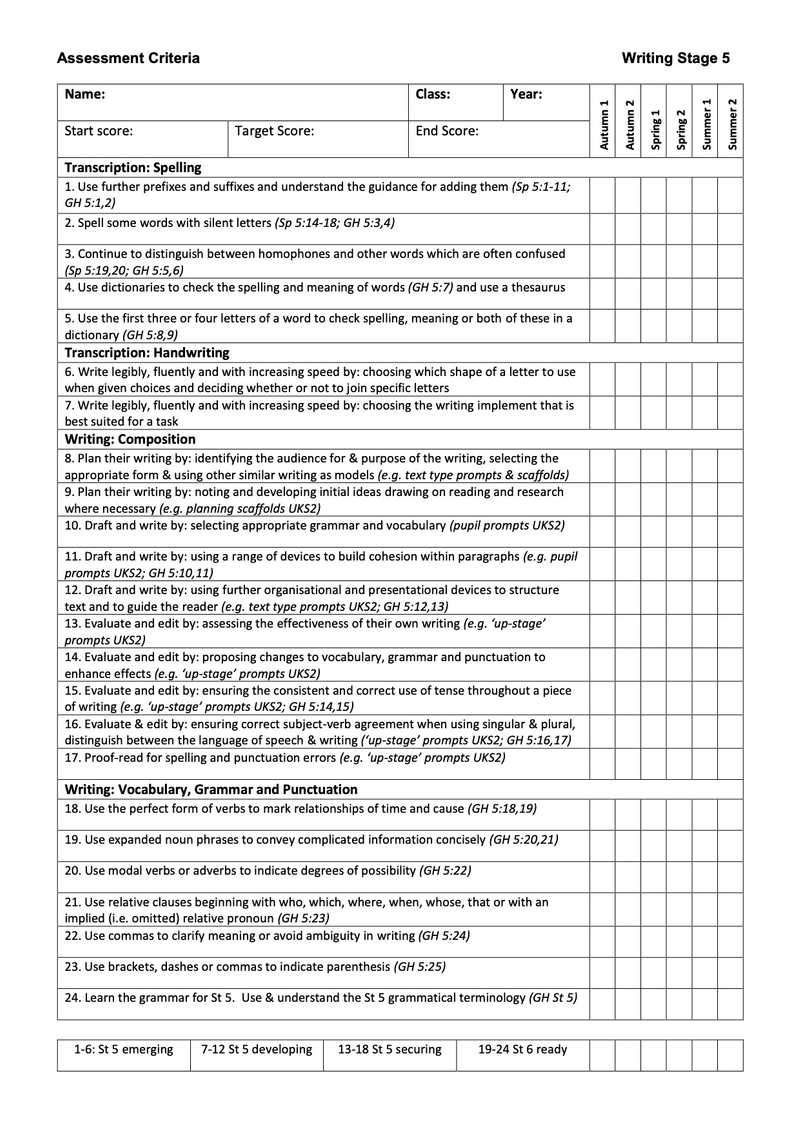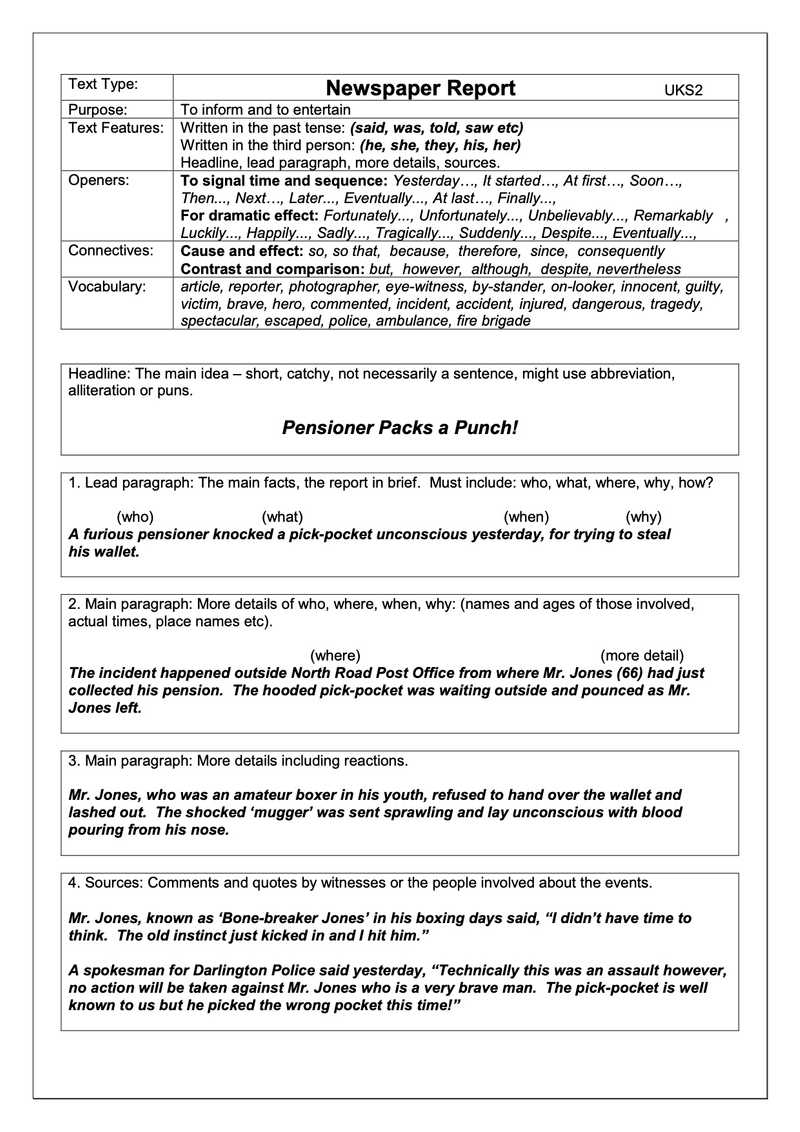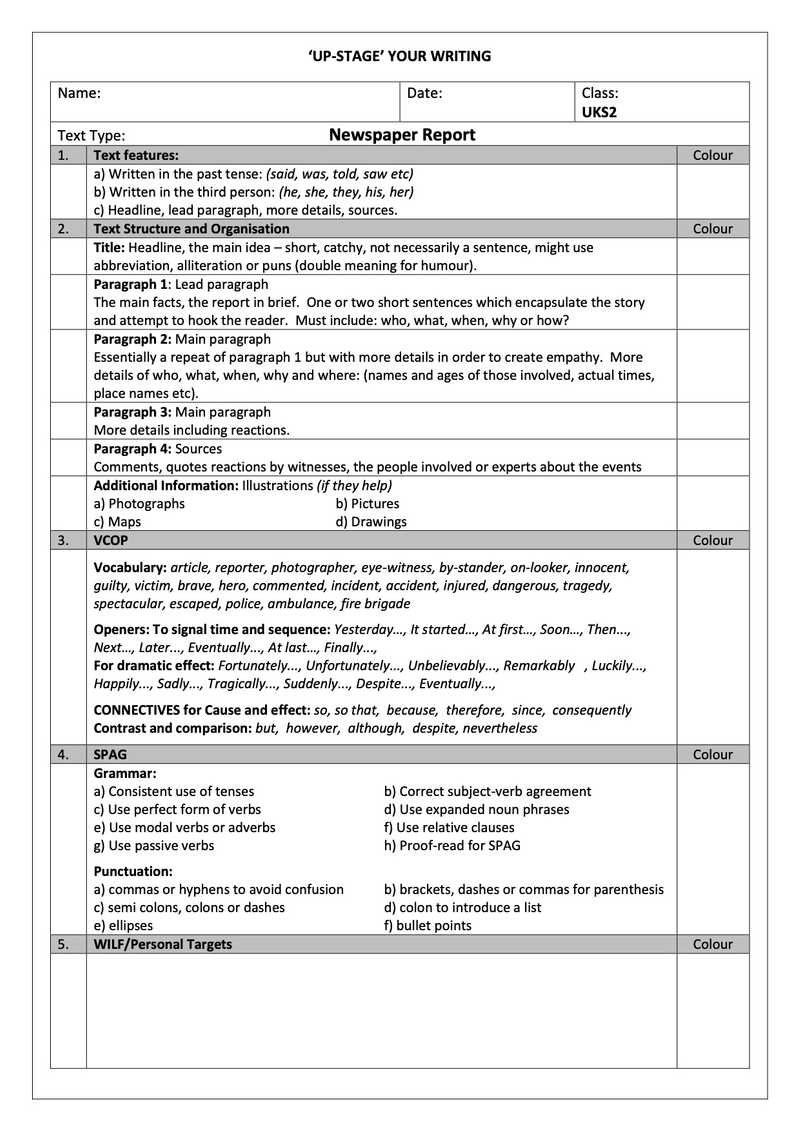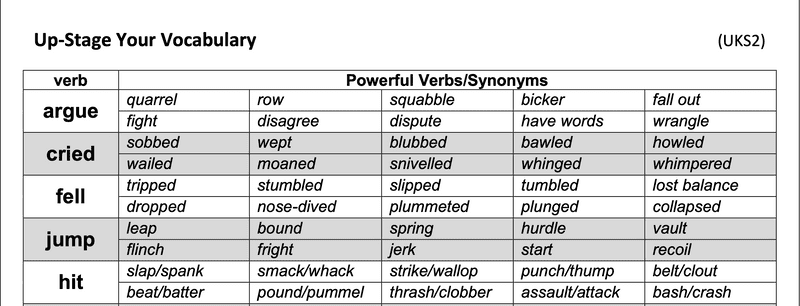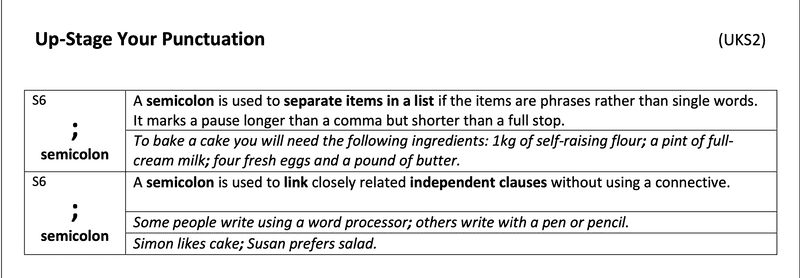Assertive Mentoring system is the perfect tool. It really works.
Our highest ever result in writing was 67%, it immediately jumped to 84%! Thank you so much.C. Greenaway, HT: Wavell Junior, North Yorks
A3a. Writing Criteria System
AIM: To ensure consistent recording, reporting and tracking of pupil progress in writing across the whole school.
We have organised the National Curriculum PoS for writing into clear assessment criteria for every year group (stage) across the school. We consistently track pupil progress against the relevant criteria for individual, groups and classes.
The Criteria brings together all the writing elements of Spelling, Handwriting, Composition, Vocabulary, Grammar and Punctuation.
The Grammar Resources (Product A1) can generate all the evidence needed to track progress against the writing grammar criteria (as well as many of the spelling criteria).
The Spelling Resources (Product A2) can generate the evidence needed to track progress against the writing spelling criteria.
The Writing Resources (Product A3) largely focus on composition and vocabulary, perhaps the most difficult to master.
Aim: To ensure that ALL criteria from ALL stages are regularly, consistently, accurately and efficiently assessed.
We only started the writing after Christmas but results rose from 40% to an incredible 90%!
C. Harrison, HT: St Edmund’s RC, Salford
Year 5 Writing Criteria Sample
The criteria record provides a ‘one sheet to view’ overview of pupil/group/class performance across all areas of writing which informs teaching, targets and interventions.
All areas of writing are cross-referenced on the criteria providing the evidence teachers need to make final assessments.
For example:
Stage 5 Criteria 2: Spell some words with silent letters (Sp 5:14-18; GH 5:3,4)
This coding means the spelling of silent letters is covered and assessed in the Stage 5 Spelling Units 14 - 18 AND each week in the Stage 5 Grammar Hammer questions 3 and 4.
A3b. Composition Resources
Aim: To ensure the consistent coverage and teaching of the key features of the main fiction and non-fiction text types.
Text Type Prompts are provided as for all the main text types including: Instructions, Biography, Discursive Argument, Explanation, Non-Chronological Report, Recount, Persuasive Writing and more, as well the fiction texts Adventure, Fairy Tale, Legend etc.
UKS2 Text Type Sample (simplified versions are provided for LKS2 and KS1)
Each text type prompt details the purpose and key features of the relevant text and provides a possible writing scaffold for the structure and organisation paragraph by paragraph.
The same text type prompt with the paragraphs blanked out is provided as a planning/organisation sheet.
The prompts ensure consistent coverage of teaching points and up-skill both staff and pupils.
Best ever writing results – even with the new curriculum. Without AM we would never have achieved this.
A. Ross, DH: Hill View Junior School, Sunderland
UKS2 Evaluate and Edit Prompts
Each text type has its own specific Evaluate and Edit prompt.
The child would not be expected to evaluate all aspects, or use after every piece of extended writing.
However, they should be used regularly and should focus on the particular teaching points of the lesson and ALWAYS on the child’s individual writing targets.
Once the children are familiar with them they provide powerful evidence with which to assess the ‘evaluate and edit’ writing criteria.
The children can quickly check their writing and evaluate how effective they have been against the areas agreed. Children use the Assertive Mentoring colour code to show how they think they have done:
Green (G) Very Good/Excellent; All correct; Fully Achieved
Yellow (Y) Fair/Good; Mostly correct; Partly Achieved
Red (R) Poor; Mostly incorrect; Not Achieved
The teacher can simply agree with the evaluation or challenge a particular colour with evidence.
UKS2 Writing Prompts
The children have a series of writing prompts to assist them as they write and allow them to ‘up-stage’ the quality of their writing.
The samples shown are for Vocabulary (UKS2) and Punctuation (Stage 6). Others include: Connectives, Openers, Figurative Language, Grammar and more. They are differentiated for LKS2 and KS1.
The children refer to these prompts in every extended writing activity, which we would suggest is once a week. They soon begin to commit many to memory and gain the skills needed to reproduce the same quality during independent writing and assessments (which is the only time the prompts cannot be used).
Target and Feedback Sheets
We recommend that the children’s writing is formally assessed every half-term and performance tracked using the writing criteria.
Feedback sheets reflecting the writing criteria are used to agree targets with the child for the next half term, using the latest assessment. The children refer to the target sheet each week during extended writing and evaluates their own performance against their targets where relevant.
The teacher uses the same sheet as feedback on whether they agree or challenge the evaluation (again using colours). This, together with the lesson objective, is the only feedback required, keeping marking efficient, effective and meaningful.
